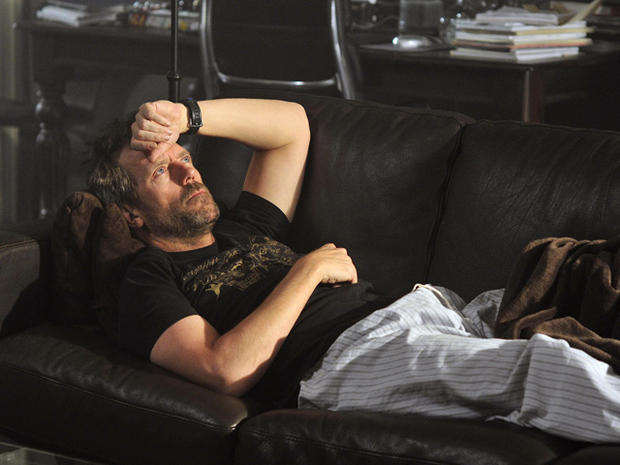"That would make a great 'House' episode!"
Is diagnosis an art or a science? Physicians Lisa Sanders and John Sotos say the answer is both. As technical advisers to the hit TV drama "House, M.D.," the two doctors are experts on the subject, having spent the last few years turning the medical science of diagnosis into art.
While he was still a medical resident, Sotos, a tall, lanky Johns Hopkins-trained cardiologist, wrote a handbook for doctors called, "Zebra Cards: An Aid to Obscure Diagnosis." It includes a list of symptoms on one side, and a likely diagnosis on the reverse. "Zebras" are what doctors call diseases that aren't always what they seem to be at first. (But Sotos is quick to caution that sometimes, the symptoms of a cold are just that.)
The term has its roots in an adage attributed to Dr. Theodore E. Woodward, late professor of medicine at the University of Maryland, who told his students, "If you hear hoof-beats behind you, don't expect to see a zebra."
Sotos' handbook has been carried by scores of medical students during their training, including it turns out, Lisa Sanders. Sanders, an athletic mother of teenage girls is a high-energy assistant professor at Yale Medical School, a columnist and blogger for the New York Times Sunday Magazine, and the author of the bestseller "Every Patient Tells a Story." In the midst of a successful stint as a television producer for CBS News -- including researching and investigating medical stories -- Sanders decided to switch careers and become a doctor. Her communication skills serve her well as a physician. The infection she is most likely to pass on to fellow doctors and patients during her rounds at the Waterbury, CT community hospital is a tendency to use the adjective "fantastic"-- with an emphasis on the second syllable.
Fantastic are also the ailments Sanders and Sotos come up with for their fictional muse, Gregory House. That's because they both seem to enjoy the intellectual challenge of a mystery.
Sanders views herself as a sort of medical Sherlock Holmes, the fictional detective created by another physician, Sir Arthur Conan Doyle. She was recently invited to address the "Baker Street Irregulars," a Holmes fan group, which, with tongues firmly in cheek, pretends that all the characters Doyle created were quite real. Sanders' detailed presentation to the Irregulars posited her theory, complete with supporting "evidence," that Holmes was diagnosed with autism.
Sotos is not only a physician, a colonel in the California Air National Guard, and one of the creators of the pioneering medical website WebMD. He is also one of the leading experts on the health of the 16th President, Abraham Lincoln, and his book on the subject is encyclopedic. He has compiled a convincing case that Lincoln carried the gene of a rare inherited cancer syndrome that Sotos believes would have taken his life within a year of the end of the Civil War had an assassin's bullet not felled him.
Between the two of them, Sanders and Sotos have provided "House" with an array of bizarre and vexing scientific mysteries that happily--and unlike real life--are diagnosed successfully within the hour of every episode. And that is art.
